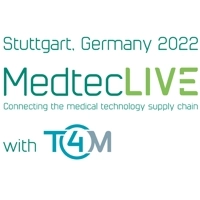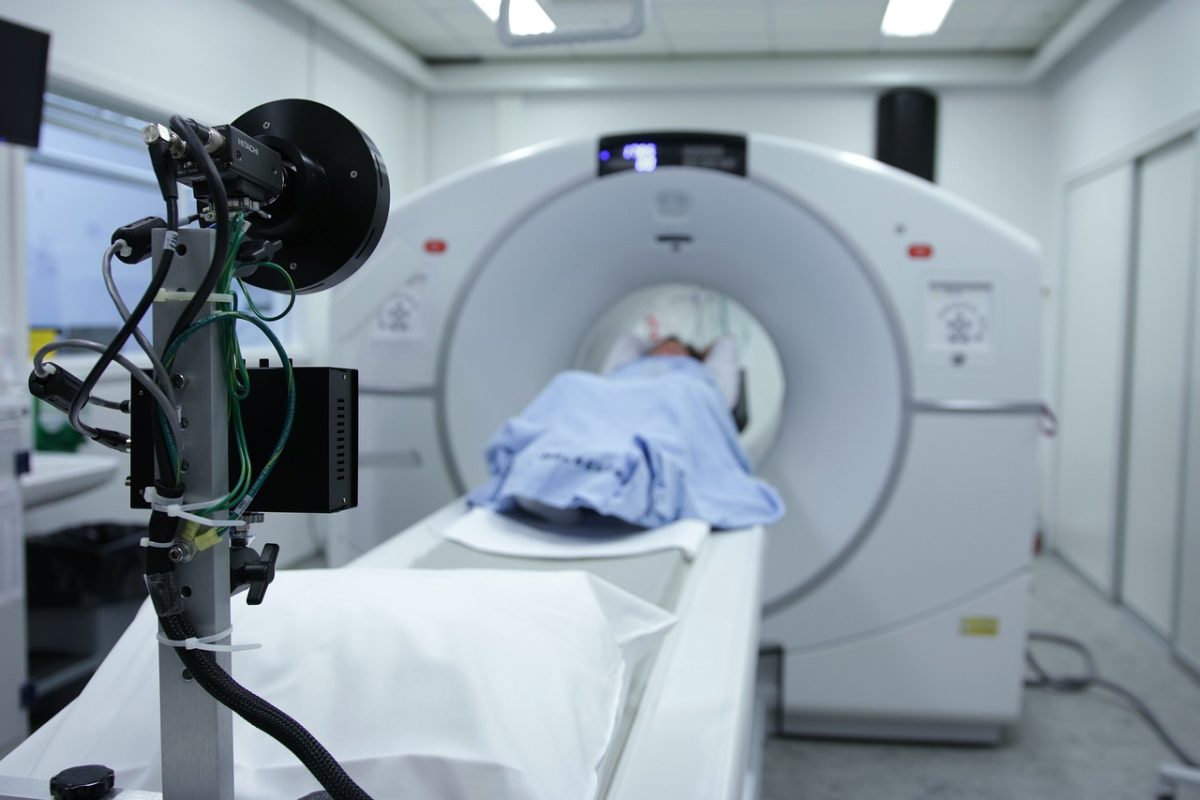
Latest NEWS
Shaping the Future of Healthcare: Exploring the Top 5 Key Trends at MedtecLIVE Stuttgart 2024

Medical Device Innovations at MedtecLIVE Stuttgart 2024

1. Artificial Intelligence (AI) and Machine Learning (ML) are revolutionizing healthcare. At MedtecLIVE Stuttgart 2024, attendees can expect to see a wide range of medical devices that utilize AI and ML algorithms to improve diagnosis, treatment, and patient outcomes. From AI-powered imaging systems that can detect early signs of diseases to ML algorithms that analyze patient data to personalize treatment plans, these technologies are transforming the way healthcare is delivered.
2. Wearable devices are becoming increasingly popular in the healthcare industry. MedtecLIVE Stuttgart 2024 will showcase a variety of wearable medical devices that monitor vital signs, track patient activity levels, and provide real-time feedback to healthcare professionals. These devices not only enable remote patient monitoring but also empower individuals to take control of their own health by providing them with valuable insights and actionable data.
3. The Internet of Things (IoT) is connecting medical devices and improving patient care. At MedtecLIVE Stuttgart 2024, attendees will witness the integration of medical devices with IoT technology, enabling seamless communication and data sharing between devices and healthcare providers. This connectivity allows for remote monitoring, timely interventions, and improved coordination of care, ultimately leading to better patient outcomes.
4. 3D printing is revolutionizing the manufacturing of medical devices. MedtecLIVE Stuttgart 2024 will showcase the latest advancements in 3D printing technology, with exhibitors presenting innovative medical devices that are customized to fit individual patients’ needs. From prosthetics to surgical instruments, 3D printing is enabling faster production, cost-effectiveness, and improved patient outcomes.
5. Robotics and automation are transforming surgical procedures. MedtecLIVE Stuttgart 2024 will feature cutting-edge robotic surgical systems that enhance precision, reduce invasiveness, and improve patient recovery times. These robotic systems enable surgeons to perform complex procedures with greater accuracy and control, leading to improved surgical outcomes and patient satisfaction.
In conclusion, MedtecLIVE Stuttgart 2024 promises to be an exciting event for the medical technology industry, showcasing the top 5 key trends in medical device innovations. From AI and ML-powered devices to wearable technology, IoT integration, 3D printing, and robotic surgical systems, these advancements are shaping the future of healthcare. Attendees can expect to witness the latest breakthroughs that will revolutionize patient care, improve outcomes, and pave the way for a more efficient and effective healthcare system.
Exploring Digital Health and Telemedicine Solutions at MedtecLIVE Stuttgart 2024
The field of healthcare is constantly evolving, with new technologies and innovations shaping the way we approach medical treatments and patient care. One event that showcases these advancements is MedtecLIVE Stuttgart, a leading trade fair for the medical technology industry. In this article, we will explore the top 5 key trends in digital health and telemedicine solutions that were highlighted at MedtecLIVE Stuttgart 2024.
Digital health has become an integral part of the healthcare landscape, revolutionizing the way we access and deliver medical services. At MedtecLIVE Stuttgart 2024, there was a strong focus on the use of digital technologies to improve patient outcomes and enhance the efficiency of healthcare delivery. One of the key trends in this area was the development of wearable devices that monitor vital signs and provide real-time data to healthcare professionals. These devices enable remote patient monitoring, allowing doctors to track patients’ health conditions and intervene when necessary, even from a distance.
Telemedicine solutions were also a major highlight at MedtecLIVE Stuttgart 2024. Telemedicine refers to the use of telecommunications technology to provide healthcare services remotely. This trend has gained significant traction in recent years, especially in rural areas where access to healthcare facilities may be limited. At the event, various companies showcased their telemedicine platforms, which enable patients to consult with doctors through video calls, receive prescriptions, and even undergo virtual examinations. This technology has the potential to greatly improve access to healthcare, particularly for those who are unable to travel long distances for medical appointments.
Another key trend in digital health and telemedicine solutions at MedtecLIVE Stuttgart 2024 was the integration of artificial intelligence (AI) into healthcare systems. AI has the ability to analyze vast amounts of medical data and identify patterns that may not be immediately apparent to human doctors. This technology can assist in diagnosing diseases, predicting patient outcomes, and even recommending personalized treatment plans. Several companies showcased AI-powered platforms that can assist doctors in making more accurate and efficient decisions, ultimately leading to better patient care.
Data security and privacy were also major concerns addressed at MedtecLIVE Stuttgart 2024. With the increasing use of digital health technologies, protecting patient data has become paramount. Companies showcased their secure platforms and encryption techniques to ensure that patient information remains confidential and protected from cyber threats. This emphasis on data security is crucial in building trust between patients and healthcare providers, as well as encouraging the widespread adoption of digital health solutions.
Lastly, MedtecLIVE Stuttgart 2024 highlighted the importance of collaboration and partnerships in driving innovation in the healthcare industry. Many exhibitors showcased their collaborative efforts with other companies, research institutions, and healthcare providers to develop and implement digital health and telemedicine solutions. This collaborative approach allows for the sharing of knowledge, resources, and expertise, ultimately leading to the development of more effective and efficient healthcare solutions.
In conclusion, MedtecLIVE Stuttgart 2024 showcased the top 5 key trends in digital health and telemedicine solutions. These trends include the development of wearable devices for remote patient monitoring, the rise of telemedicine platforms for remote consultations, the integration of AI into healthcare systems, the emphasis on data security and privacy, and the importance of collaboration and partnerships in driving innovation. These trends have the potential to shape the future of healthcare, improving patient outcomes and transforming the way we deliver medical services.
The Future of Healthcare: Wearable Medical Technology at MedtecLIVE Stuttgart 2024
The future of healthcare is rapidly evolving, with advancements in technology playing a crucial role in shaping the industry. One of the key trends that will be explored at MedtecLIVE Stuttgart 2024 is wearable medical technology. Wearable devices have gained significant popularity in recent years, and their potential in revolutionizing healthcare is immense.
Wearable medical technology refers to devices that can be worn on the body, such as smartwatches, fitness trackers, and even smart clothing. These devices are equipped with sensors and other advanced technologies that can monitor various health parameters and provide valuable insights to both patients and healthcare professionals.
One of the main advantages of wearable medical technology is its ability to enable continuous monitoring of vital signs. Traditionally, patients had to visit healthcare facilities to have their vital signs checked. However, with wearable devices, individuals can now monitor their heart rate, blood pressure, and even blood glucose levels in real-time. This continuous monitoring allows for early detection of any abnormalities or changes in health, enabling timely intervention and prevention of potential complications.
Another key benefit of wearable medical technology is its potential to improve patient engagement and adherence to treatment plans. These devices can provide reminders for medication intake, exercise routines, and other important healthcare activities. By keeping patients actively engaged in their own healthcare, wearable devices can help improve treatment outcomes and overall patient satisfaction.
Furthermore, wearable medical technology has the potential to enhance remote patient monitoring. With the increasing demand for telehealth services, wearable devices can play a crucial role in enabling healthcare professionals to remotely monitor patients’ health conditions. This can be particularly beneficial for individuals with chronic diseases or those who live in remote areas with limited access to healthcare facilities. By providing real-time data to healthcare professionals, wearable devices can facilitate early intervention and prevent unnecessary hospitalizations.
In addition to monitoring health parameters, wearable medical technology can also facilitate the collection of valuable data for research purposes. With the consent of users, anonymized data collected from wearable devices can be used to gain insights into population health trends, disease patterns, and the effectiveness of various treatment interventions. This data can then be used to inform public health policies and improve healthcare delivery on a larger scale.
However, despite the numerous advantages of wearable medical technology, there are also challenges that need to be addressed. One of the main concerns is the privacy and security of the data collected by these devices. As wearable devices become more integrated into healthcare systems, it is crucial to ensure that appropriate measures are in place to protect patient information and maintain confidentiality.
In conclusion, wearable medical technology is set to shape the future of healthcare. With its ability to enable continuous monitoring, improve patient engagement, enhance remote patient monitoring, and contribute to research, wearable devices have the potential to revolutionize healthcare delivery. However, it is important to address privacy and security concerns to fully harness the benefits of this technology. MedtecLIVE Stuttgart 2024 will provide a platform to explore these trends and pave the way for a future where wearable medical technology becomes an integral part of healthcare.
Robotics and Automation in Healthcare: Key Trends at MedtecLIVE Stuttgart 2024
Shaping the Future of Healthcare: Exploring the Top 5 Key Trends at MedtecLIVE Stuttgart 2024
Robotics and Automation in Healthcare: Key Trends at MedtecLIVE Stuttgart 2024
The field of healthcare is constantly evolving, with new technologies and innovations shaping the way we approach patient care. One area that has seen significant advancements in recent years is robotics and automation. These technologies have the potential to revolutionize healthcare by improving efficiency, accuracy, and patient outcomes. At MedtecLIVE Stuttgart 2024, the leading trade fair for medical technology, several key trends in robotics and automation were highlighted, showcasing the exciting future of healthcare.
One of the top trends at MedtecLIVE Stuttgart 2024 was the use of robotic surgery systems. These advanced machines are capable of performing complex surgical procedures with precision and accuracy. Surgeons can control the robots using a console, which translates their movements into precise actions by the robotic arms. This technology allows for smaller incisions, reduced blood loss, and faster recovery times for patients. The advancements in robotic surgery systems showcased at MedtecLIVE Stuttgart 2024 are set to revolutionize the field of surgery and improve patient outcomes.
Another key trend in robotics and automation at MedtecLIVE Stuttgart 2024 was the development of robotic exoskeletons. These wearable devices are designed to assist individuals with mobility impairments, allowing them to regain independence and improve their quality of life. The exoskeletons showcased at the event were lightweight, customizable, and capable of providing support and assistance for a range of mobility challenges. From helping individuals with spinal cord injuries to walk again, to aiding elderly individuals with mobility issues, robotic exoskeletons have the potential to transform the lives of millions.
In addition to surgical robots and exoskeletons, MedtecLIVE Stuttgart 2024 also highlighted the use of robotics and automation in rehabilitation. Robotic rehabilitation systems are designed to assist patients in their recovery from injuries or surgeries. These systems use advanced sensors and algorithms to provide personalized therapy sessions, tailored to each patient’s specific needs. The robots can guide patients through exercises, track their progress, and provide real-time feedback. This technology not only improves the efficiency of rehabilitation, but also allows for remote monitoring and virtual therapy sessions, expanding access to care for patients in remote areas.
Another exciting trend in robotics and automation at MedtecLIVE Stuttgart 2024 was the use of robots in healthcare logistics. These robots are designed to automate tasks such as inventory management, medication delivery, and patient transportation within healthcare facilities. By taking over these repetitive and time-consuming tasks, robots free up healthcare professionals to focus on patient care. The robots showcased at the event were equipped with advanced sensors and navigation systems, allowing them to safely navigate through crowded hospital corridors and interact with patients and staff.
Lastly, MedtecLIVE Stuttgart 2024 highlighted the integration of artificial intelligence (AI) in robotics and automation in healthcare. AI-powered robots have the ability to learn from data, adapt to new situations, and make intelligent decisions. This technology has the potential to enhance the capabilities of robots in healthcare, allowing them to perform more complex tasks and provide personalized care. From assisting in diagnosis and treatment planning to predicting patient outcomes, AI-powered robots have the potential to revolutionize healthcare delivery.
In conclusion, robotics and automation are set to shape the future of healthcare. The key trends showcased at MedtecLIVE Stuttgart 2024 highlight the immense potential of these technologies in improving patient care, enhancing efficiency, and transforming the lives of individuals with mobility impairments. From robotic surgery systems to exoskeletons, rehabilitation systems, healthcare logistics robots, and AI integration, the future of healthcare is undoubtedly exciting. As these technologies continue to advance, we can expect to see even more innovative solutions that will revolutionize the way we approach healthcare.
Regulatory Compliance and Quality Assurance in the Future of Healthcare at MedtecLIVE Stuttgart 2024
Regulatory compliance and quality assurance are crucial aspects of the healthcare industry. They ensure that medical devices and technologies meet the necessary standards and regulations to guarantee patient safety and efficacy. At MedtecLIVE Stuttgart 2024, these topics took center stage as experts and industry leaders discussed the top trends shaping the future of healthcare in this area.
One of the key trends highlighted at the event was the increasing importance of data integrity in regulatory compliance. With the rise of digital health technologies and the collection of vast amounts of patient data, ensuring the integrity and security of this information has become paramount. Regulatory bodies are placing greater emphasis on data protection and privacy, requiring companies to implement robust systems and protocols to safeguard patient information.
Another trend that emerged at MedtecLIVE Stuttgart 2024 was the growing role of artificial intelligence (AI) in regulatory compliance and quality assurance. AI has the potential to revolutionize these processes by automating tasks, improving accuracy, and reducing human error. For example, AI algorithms can analyze large datasets to identify patterns and anomalies, helping companies detect potential issues and ensure compliance with regulations.
The event also shed light on the increasing complexity of global regulations and the need for harmonization. As the healthcare industry becomes more globalized, companies must navigate a complex web of regulations and standards across different countries and regions. This can be a daunting task, requiring significant resources and expertise. The need for harmonization of regulations was emphasized as a way to streamline processes, reduce costs, and ensure consistent quality across borders.
In addition to data integrity, AI, and global regulations, MedtecLIVE Stuttgart 2024 also highlighted the importance of proactive risk management in regulatory compliance and quality assurance. Traditionally, risk management has been a reactive process, with companies addressing issues as they arise. However, there is a growing recognition that proactive risk management is essential to prevent problems before they occur. This involves identifying potential risks, implementing preventive measures, and continuously monitoring and evaluating processes to ensure ongoing compliance and quality.
Lastly, the event emphasized the need for collaboration and knowledge sharing in regulatory compliance and quality assurance. The healthcare industry is constantly evolving, with new technologies and regulations emerging regularly. To stay ahead of the curve, companies must collaborate with regulatory bodies, industry associations, and other stakeholders to exchange knowledge and best practices. This can help companies navigate the complex regulatory landscape, adapt to changes, and ensure the highest standards of quality and compliance.
In conclusion, regulatory compliance and quality assurance are critical components of the future of healthcare. MedtecLIVE Stuttgart 2024 highlighted the top trends in this area, including the importance of data integrity, the role of AI, the need for global harmonization, proactive risk management, and collaboration. By staying abreast of these trends and embracing innovative approaches, companies can shape the future of healthcare and ensure the safety and efficacy of medical devices and technologies.



